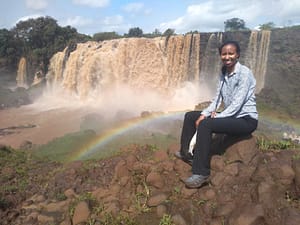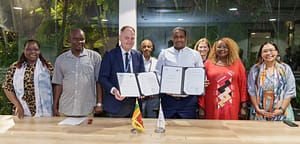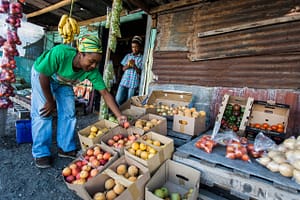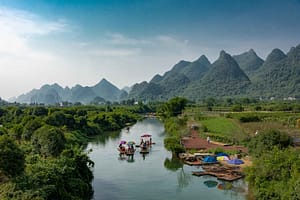To mitigate the negative effects of urbanization on resource use and environmental pollution, 15 key actors in the waste-sanitation-agriculture interface joined efforts to set up a Circular Bioeconomy Innovation Hub in Ghana. Based on a decade of CGIAR research, the hub links ministries, universities, science, and private sector, to offer their infrastructure and knowledge for building capacity in circular bio-solution for school students to professionals. Using co-ownership principles, the hub builds on jointly defined objectives and workplans.
The challenges of increasing urbanization in terms of food security and resource use, governance, and adequate waste management are growing with the urban populations. How can the negative urban footprint be mitigated? How can we reduce the mountains of food waste and safeguard the peri-urban environment? In response, the CGIAR Initiative on Resilient Cities has facilitated a Circular Bioeconomy Innovation Hub in Ghana linking key stakeholders from the public and private sector, research, and education. Under the leadership of the International Water Management Institute (IWMI), the Innovation Hub builds on a decade of CGIAR research on Resource Recovery and Reuse (RRR) from technology development to business modeling, the implementation of Public-Private Partnerships, and commercialization of recovered resources. The Hub can showcase, for example, how organic waste is transformed into safe compost and co-compost (with fecal sludge), dry fuel (briquettes), biochar or biogas, or how aquaculture can be a thriving business in symbiosis with wastewater treatment plants. Knowledge sharing ranges from hands-on training in biomass transformation and valorization, business development, the analysis of the enabling environment, demand exploration, and marketing. The capacity-building program is not only targeting young professionals of micro-, small-, and medium-sized enterprises (MSMEs), but also the public sector, and has programs for schools looking at what households can contribute to a circular bioeconomy.







